How do humanitarian aid workers think and act?
This work focuses on how humanitarian organisations operate, including their members, affiliations, messages, practices and cultures. Aid to refugee, displaced, deported, exiled and interned populations plays a central role in humanitarian action both now and in the past. What types of aid are provided to internees and displaced persons? What kinds of obstacles and dilemmas does it face? What sorts of practical, political and ethical questions are raised by the participation of humanitarian organisations in population displacement and internment policies?
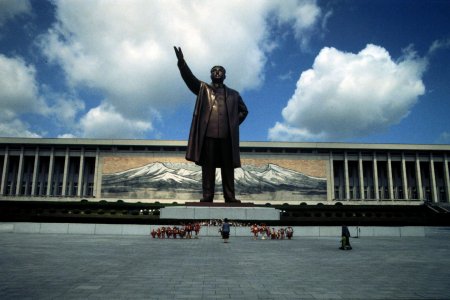 PETER VAN QUAILLE
Speaking Out Case Studies
PETER VAN QUAILLE
Speaking Out Case Studies
MSF and North Korea 1995-1998
10/01/2014The 'MSF in North Korea 1995-1998’ case study is describing the constraints and dilemmas that led Médecins Sans Frontières to speak out publicly while its teams were trying to bring assistance to the North Korean population on its territory between 1995 and 1998 and to the North Korean refugees in Asia in the following years.
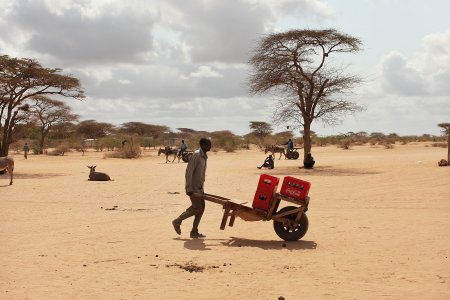 Spencer Platt
Analysis
Spencer Platt
Analysis
MSF and the aid system: choosing not to choose
07/03/2014We often hear it said within MSF that the aid system is unable to provide effective relief, or that the aid system’s ability to provide aid is in decline. These statements, which suggest that MSF is itself outside the "system", are based on the very real number of people in relief operations who need help but do not receive it, or do not receive enough of it.
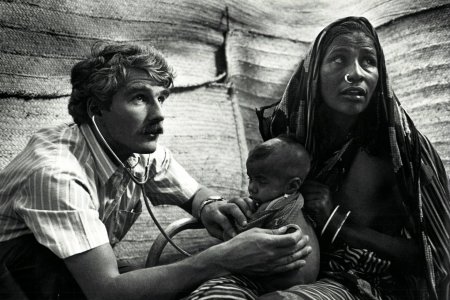 Sebastiao Salgado
Speaking Out Case Studies
Sebastiao Salgado
Speaking Out Case Studies
Famine and Forced Relocations in Ethiopia 1984-1986
11/13/2013The "Famine and Forced Relocations in Ethiopia 1984-1986" case study is describing the difficulties and dilemmas met by MSF during the famine that decimated the Ethiopian population in 1984-1985.
 Sebastiao Salgado
Speaking Out Case Studies
Sebastiao Salgado
Speaking Out Case Studies
Famine and Forced Relocations in Ethiopia 1984-1986
11/13/2013The "Famine and Forced Relocations in Ethiopia 1984-1986" case study is describing the difficulties and dilemmas met by MSF during the famine that decimated the Ethiopian population in 1984-1985.
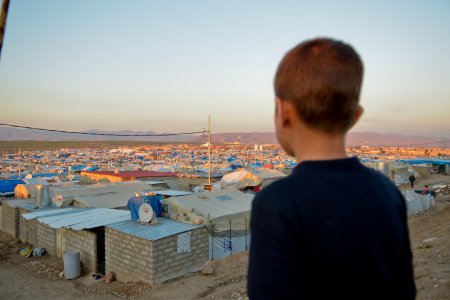 Pierre-Yves Bernard
Opinion
Pierre-Yves Bernard
Opinion
Syria: Breaking the De Facto Humanitarian Embargo against Rebel-Held Areas
03/19/2013While European Union members are debating the lifting of arms embargo on Syria, populations living in opposition held territories continue to be severed from desperately needed humanitarian aid. Yet, there is a controversy among aid agencies on the best ways to scale up relief activities in Syria.
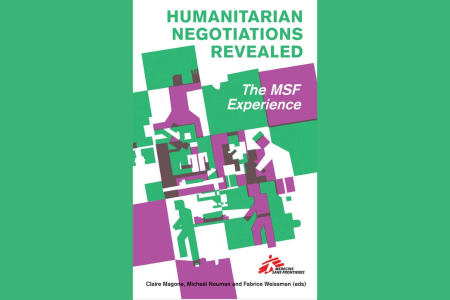 Book
Book
Humanitarian Negotiations Revealed: the MSF experience
02/17/2012From international NGOs to UN agencies, from donors to observers of humanitarianism, opinion is unanimous: in a context of the alleged ‘clash of civilisations’, our ‘humanitarian space’ is shrinking.
40 years helping the disregarded
12/11/2011Rony Brauman discusses several aspects and issues related humanitarian action as well as the good reasons to wish Médecins sans frontières a happy 40th anniversary.
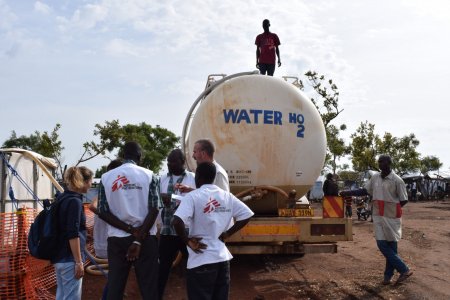 Charlotte Morris
Cahier
Charlotte Morris
Cahier
Is humanitarian water safe to drink?
07/04/2011Four hepatitis E epidemics have occurred in the areas in which we operate since 2000, prompting a reflection on the quality of the water produced and distributed to their populations by humanitarian organisations.
 Nick Owen
Cahier
Nick Owen
Cahier
Médecins Sans Frontières and the aftermath of war
01/10/2010This study started out looking at the shift to a post-conflict situation in Katanga; the intention was to describe how MSF’s sections negotiated the transition from war to post-war.
